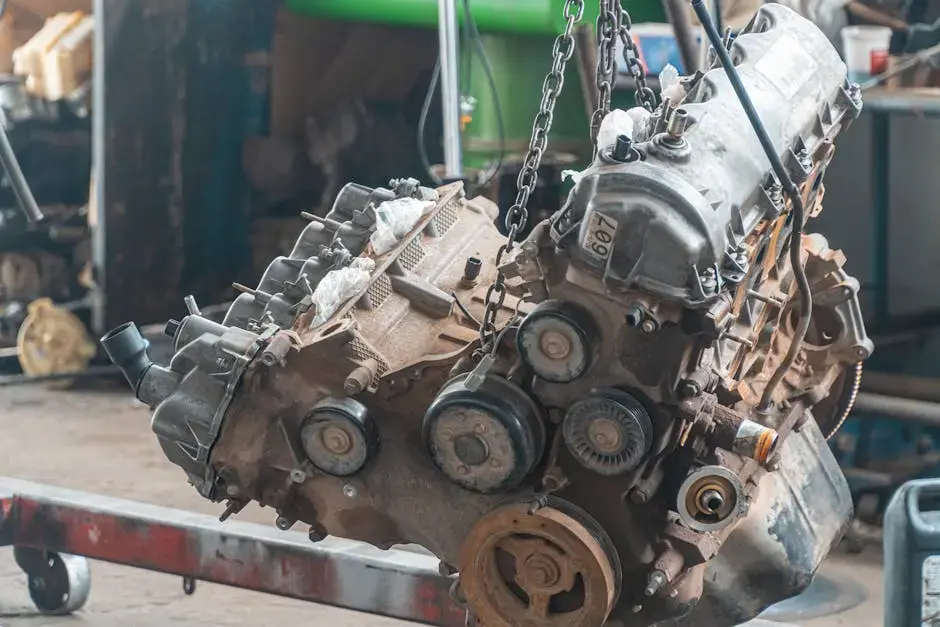What Are the Most Common Diesel Engine Repair Issues?
- Sylvia Smith
- Jan 8, 2025
- 3 min read
Diesel engines are known for their durability and performance, but like any machinery, they can face repair issues over time. Understanding the most common problems can help you identify symptoms early and save on costly repairs. In this FAQ, we'll break down the frequent problems that diesel engine owners might encounter.

1. Fuel System Issues
Clogged filters, bad injectors, and fuel line leaks are frequent culprits in diesel engines. Understanding these components can help you catch problems early.
Fuel filters are of utmost importance, as they sift out impurities in the diesel. If they become clogged, your engine may suffer from poor performance and reduced fuel efficiency.
Bad injectors can severely impact the engine’s operation. They play a crucial role in spraying diesel into the combustion chamber; thus, maintaining their functionality is vital.
Regular checks and replacements of fuel filters and injectors can help avert severe damage. A simple inspection can extend the life of your diesel engine.
2. Cooling System Failures
Overheating can lead to severe damage. Regular checks on your radiator and coolant levels can help prevent these issues.
The cooling system consists of various components that work in tandem to dissipate heat. A malfunctioning thermostat can block coolant flow, leading to higher temperatures that can damage your engine.
Additionally, a leaking radiator can compromise your cooling efficiency. It’s wise to monitor for signs like puddles beneath your vehicle or fluctuating temperature gauges.
By regularly maintaining the cooling system, you can significantly reduce the risk of costly repairs due to overheating. Remember, prevention is always the best course of action.
3. Electrical System Problems
Starting issues and warning lights can indicate a failing battery or alternator. Troubleshooting your electrical system should be a priority.
Electrical components are the brain of your diesel engine. If you notice dim lights or slow engine cranking, this might be a sign that your battery needs inspection.
Investing time into understanding your electrical system can result in early detection of problems, which is vital for a diesel engine’s performance.
Routine checks, like ensuring that battery terminals are clean and securely connected, can help avoid unexpected breakdowns.
4. Oil Leaks
Oil leaks can lead to lower oil levels, which can harm your engine. Regular inspections can help you identify leaks sooner.
Detecting oil leaks early can save you from expensive engine repairs. Look for dark spots on your driveway or under your vehicle, as these can indicate a leaking oil pan or gasket.
Additionally, make it a habit to check oil levels regularly. If you notice a drop in levels without any signs of leaks, this could suggest an internal engine problem.
By addressing oil leaks promptly, you can maintain your engine's health and efficiency, ultimately prolonging its lifespan.
5. Turbocharger Issues
Turbochargers are essential for performance. Listen for changes in noise and check for oil leaks around the turbo.
A malfunctioning turbocharger can drastically affect your diesel engine's efficiency. Look out for unusual whistling or whining noises, which may indicate that your turbo isn't functioning correctly.
Routine maintenance, including checking the oil supply to the turbocharger, can help avoid these costly repairs. Remember, a well-maintained turbo can significantly improve your engine's performance.
If you suspect issues with your turbo, seek professional help promptly. Quick action can make all the difference.
Conclusion: Keeping Your Diesel Engine Running Smoothly
By being aware of these common diesel engine repair issues, you can take proactive steps to maintain your engine and ensure its longevity. Regular maintenance and early intervention are key to preventing serious damage and costly repairs.




Comments